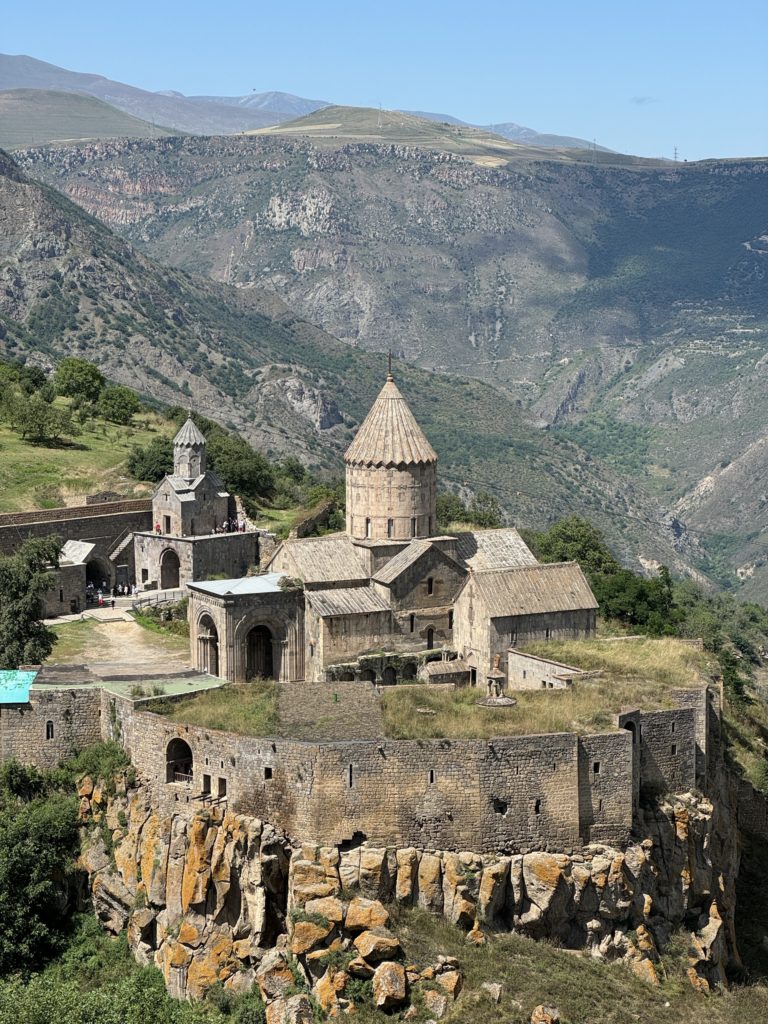
When Tim joined us, it marked a significant milestone in our trip—a distant event that had once seemed far off, then suddenly became reality, and now had passed. Thomas and I had been on the road for nearly 80 days—by far the longest I had ever traveled—and we hadn’t even reached the halfway point! I couldn’t say I felt happy to continue our journey after Tim left, but I didn’t feel unhappy either. I was simply astonished by how far we had come and what still lay ahead. It was almost unbelievable.
This ambivalent feeling was reflected in the landscape we cycled through after leaving Yerevan, where we had said goodbye to Tim: beautiful yet hostile. Our route initially led us straight toward Mount Ararat, a mountain of deep cultural significance for Armenians, dominating the view from nearly every elevated spot in Yerevan. Yet, it remains off-limits to them, cut off by the impassable Turkish-Armenian border. Just before reaching Mount Ararat, the road veered left, following the closed Turkish border and heading toward Azerbaijan’s exclave, where the road ahead was blocked, forcing traffic to turn abruptly left into the mountains. As we continued along the border with Azerbaijan—another impassable one—the signs of the recent war were still starkly visible in the form of deserted Armenian military positions.
We decided against wild camping and chose to continue to Chiva, the first village with accommodation, as the weather forecast predicted rain for the night and the following day. It was already dark when we arrived in Chiva, and the B&B we had tried but failed to book in advance looked deserted. Our backup option also appeared abandoned—though we only realized the next day that we were actually standing in front of the closed post office. Fortunately, a man guessed what we were looking for and directed us further up the road, where the Ararat B&B (our plan B) was actually located. Despite the late hour and our lack of a reservation, the family greeted us warmly, prepared our room, and served an amazing buffet-style dinner. There were plenty of options to avoid meat, but the owner, who had cooked the meal, sat down with us and kept encouraging us to eat more and try everything, making it difficult to stick to our determination. I believe all guests are treated to such an incredible, mostly homemade and homegrown meal, but this was a special day for the family: their grandson was returning from two years of compulsory military service. I guess that’s a cause for celebration in any country, but in Armenia—where the last war ended less than a year ago and the fear of another attack is ever-present—this must have been an enormous relief.
The final stretch toward the Iranian border was tough—a long day with a 1,820-meter climb to our highest pass yet, Tashtun Pass, at 2,535 meters. Thomas’ knee was hurting more and more, to the point where he could barely push with his right leg and had to rely almost entirely on his left. I was ready to turn around halfway up, but Thomas somehow pushed through. For me, there were only two bright spots that day (and at most one—if any—for Thomas): the stunning mountains surrounding us and the honking trucks! Normally, a honking truck is just that, but climbing that pass so slowly gave me the chance to actually see who was behind the honking. I was delighted by all the smiling faces, and seeing their faces light up when I waved back made my day—and seemingly theirs as well.
Before crossing the border into Iran, we spent a day in a hotel, waiting for Thomas’ knee to improve while keeping an eye on how the situation in Iran unfolded after the assassination of a Hamas leader in Tehran the day before. For a moment, the U.S. election vanished from the headlines, and the world’s attention shifted to Iran and the Middle East. Every newspaper was focused on the assassination—the background, predictions of what might happen next, and what Iran’s promised retaliation would entail. And the big question on everyone’s mind: would this trigger a wider regional war?
Sitting on the balcony in this border village, nestled in the middle of the mountains, we were physically closer to these events than ever before, yet all the political turmoil felt incredibly distant—like a world apart from the people and remote mountains surrounding us. However, one thing I’ve learned while cycling is that nothing is constant, and everything can change in an instant. Things, feelings, situations, weather, and even countries can seem stable or far away (literally or metaphorically), and then suddenly…
Nevertheless, we decided to go through with it—tomorrow, we were heading to Iran. It felt right. Yet, I was also worried and couldn’t shake the guilt of defying all the warnings of so many, including the official travel warnings from the Swiss government. Memories of being stranded in Ecuador during the first COVID lockdown, how quickly everything changed, the inability to return home, and the insecurity that followed were fresh in my mind. Crying myself to sleep that night, I noticed that Thomas didn’t tell me, “Everything will be alright”—a phrase that might have calmed me but would have also trivialized my concerns. His silence felt oddly reassuring. We would face whatever came tomorrow. Together.
Anecdote:
Areni: We managed to avoid most of the heavy downpours announced for the day by taking shelter in a cave where archaeologists discovered one of the world’s oldest wineries, dating back around 6,000 years. Later during the Soviet era, Armenia was designated to produce brandy while Georgia was tasked with making wine. However, the discovery of this ancient winery in 2007 changed everything. Armenia went from producing just 10 unreliable wines before the discovery to over 250 high-quality wines today, sparking a whole wine tourism industry in the region. Back in Yerevan, we had tried some of these wines, including (and for any wine connoisseur, “as well as”) pomegranate wine, a bottle of which we even sent home with Tim. Our first and only souvenir so far.

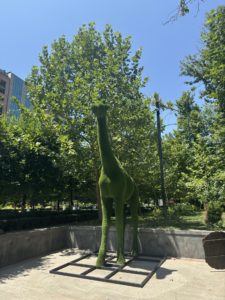
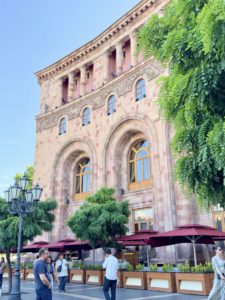
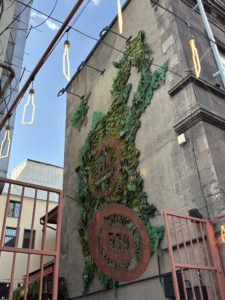
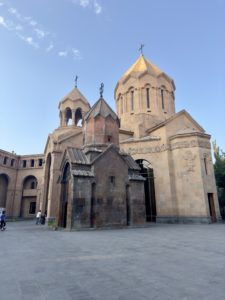
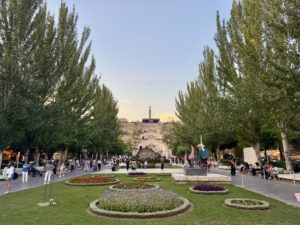
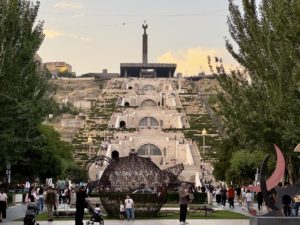
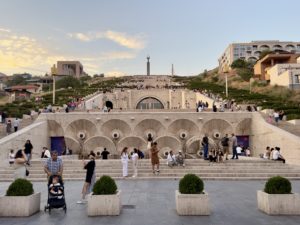
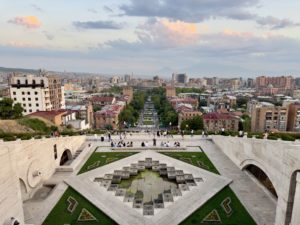
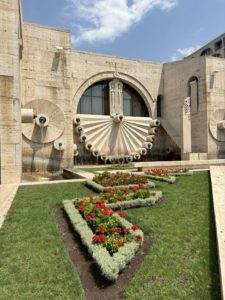
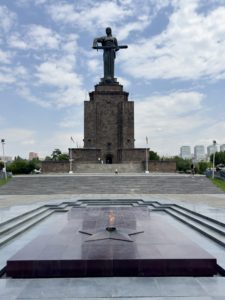
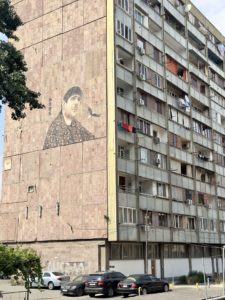
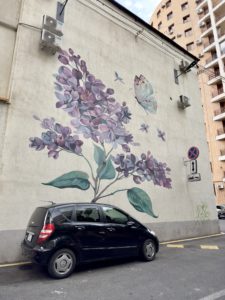
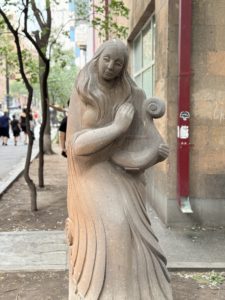
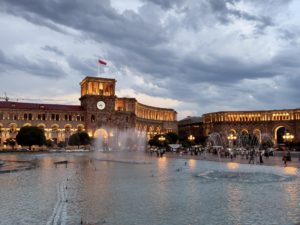
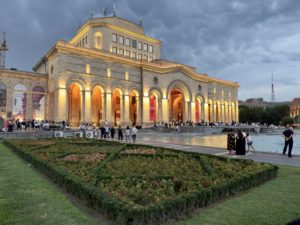
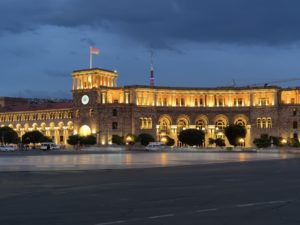
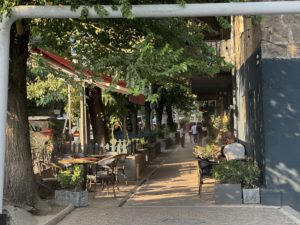
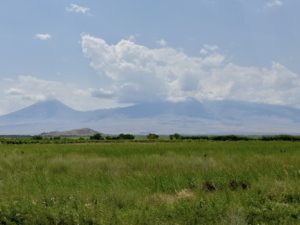
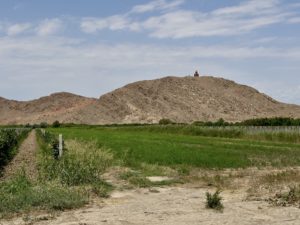
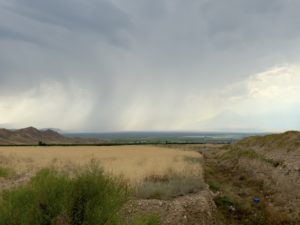
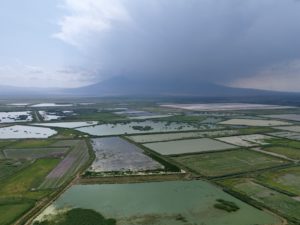
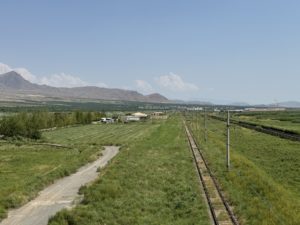
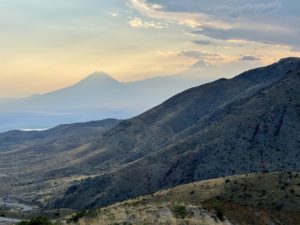
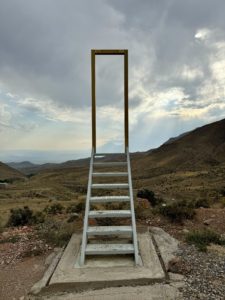
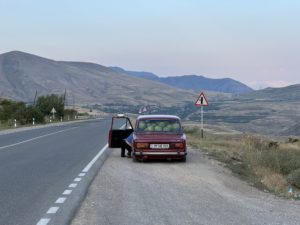
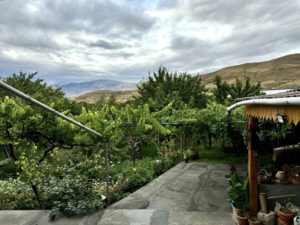
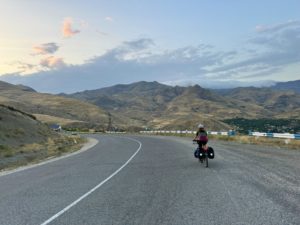
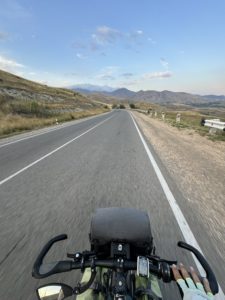
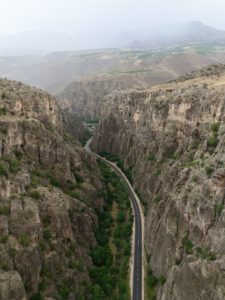
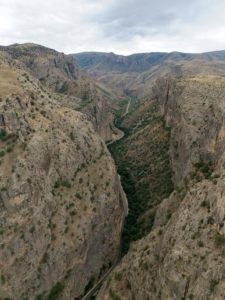
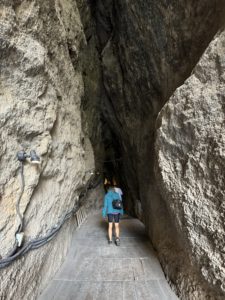
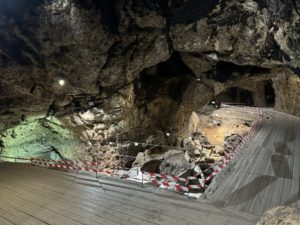
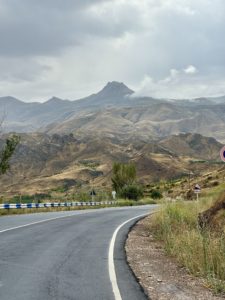
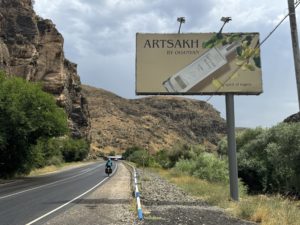
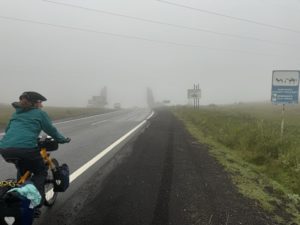

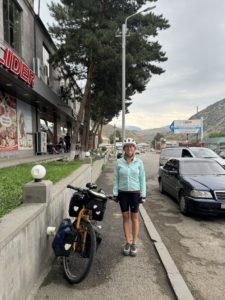
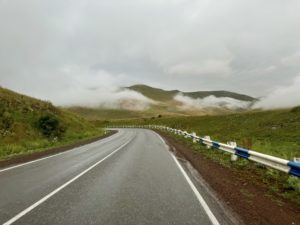
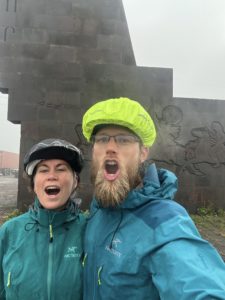
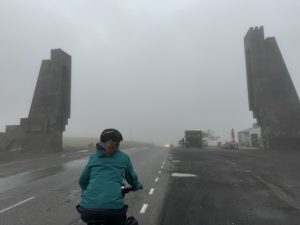
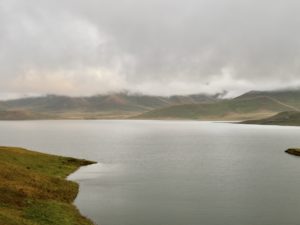
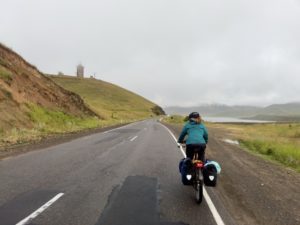
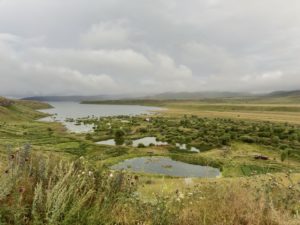
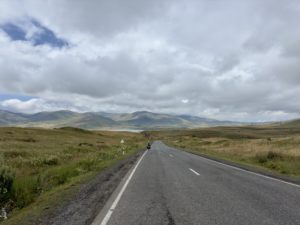
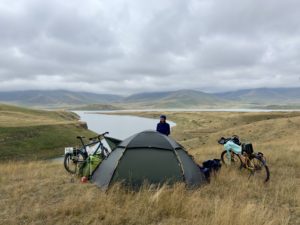
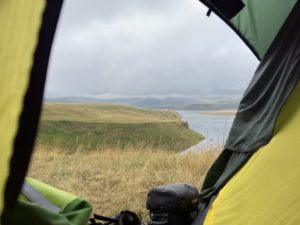
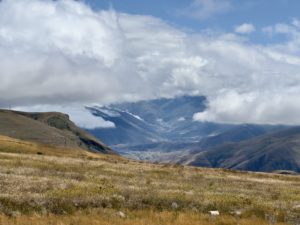
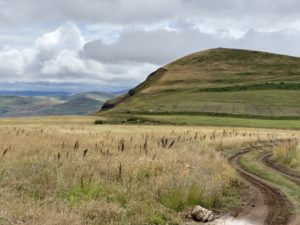
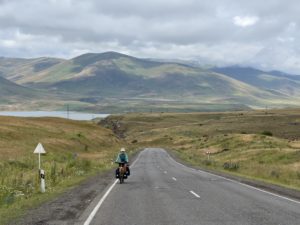
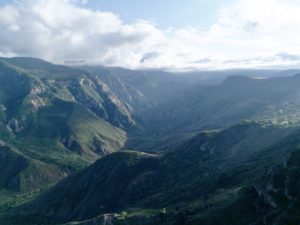
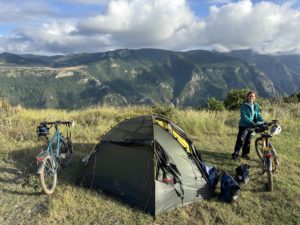
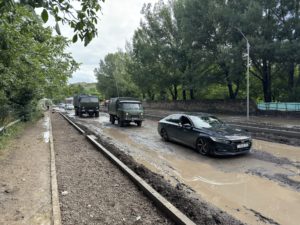
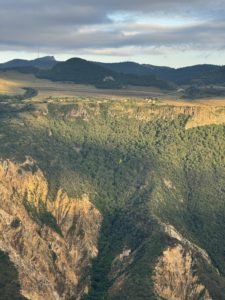
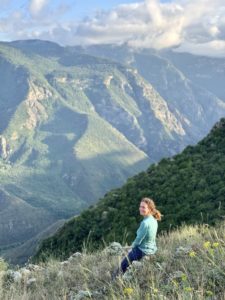
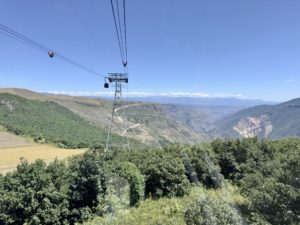
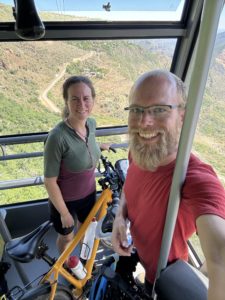
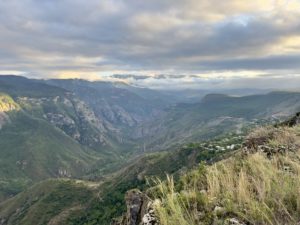
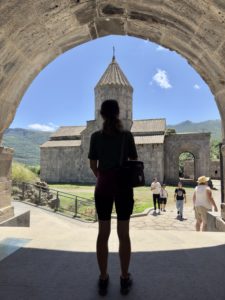
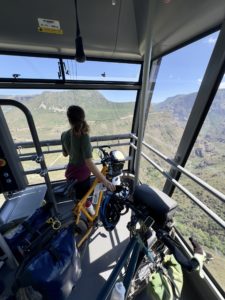
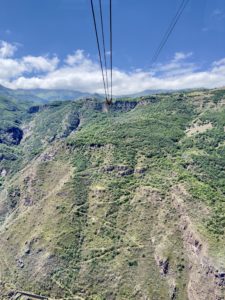
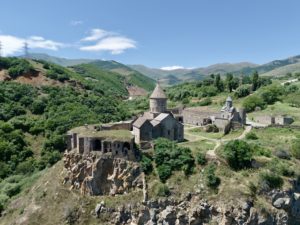
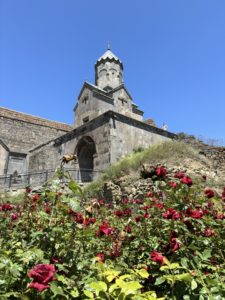
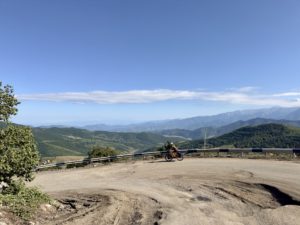
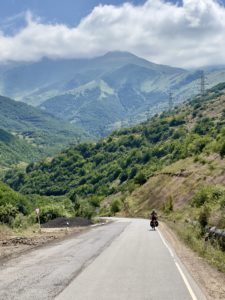
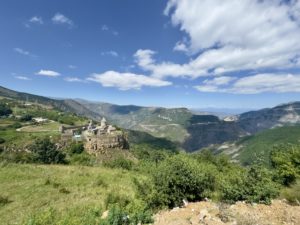
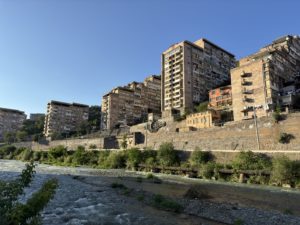
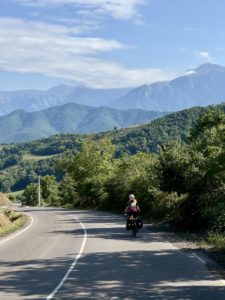
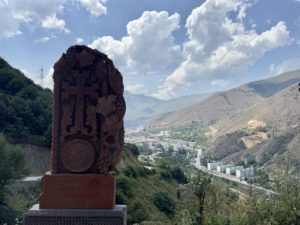
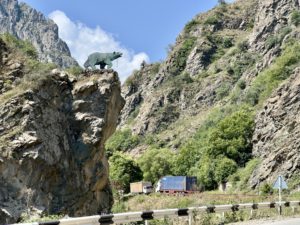
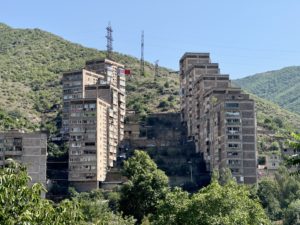
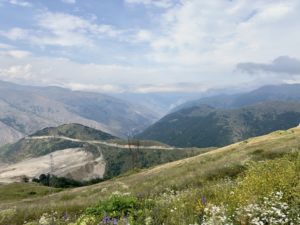
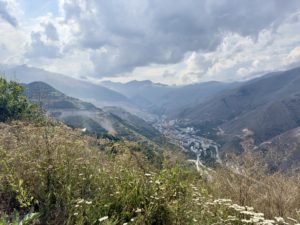
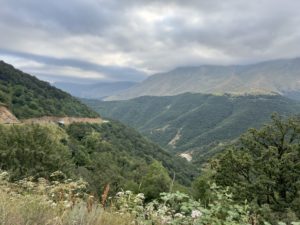
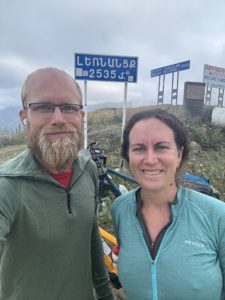
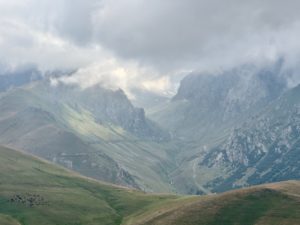
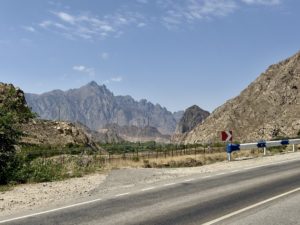
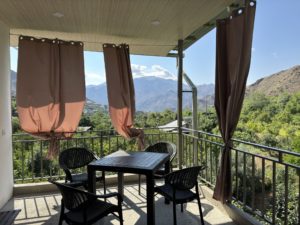
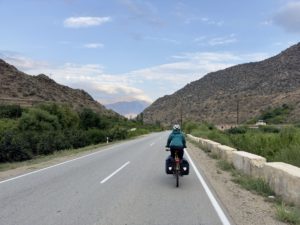
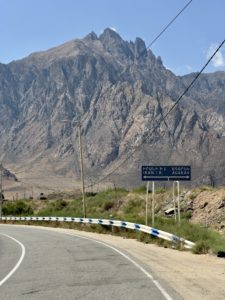
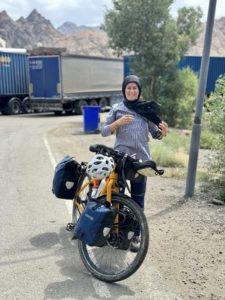
Leave a Reply